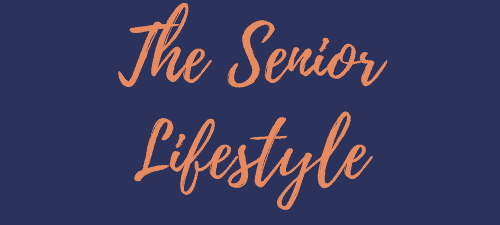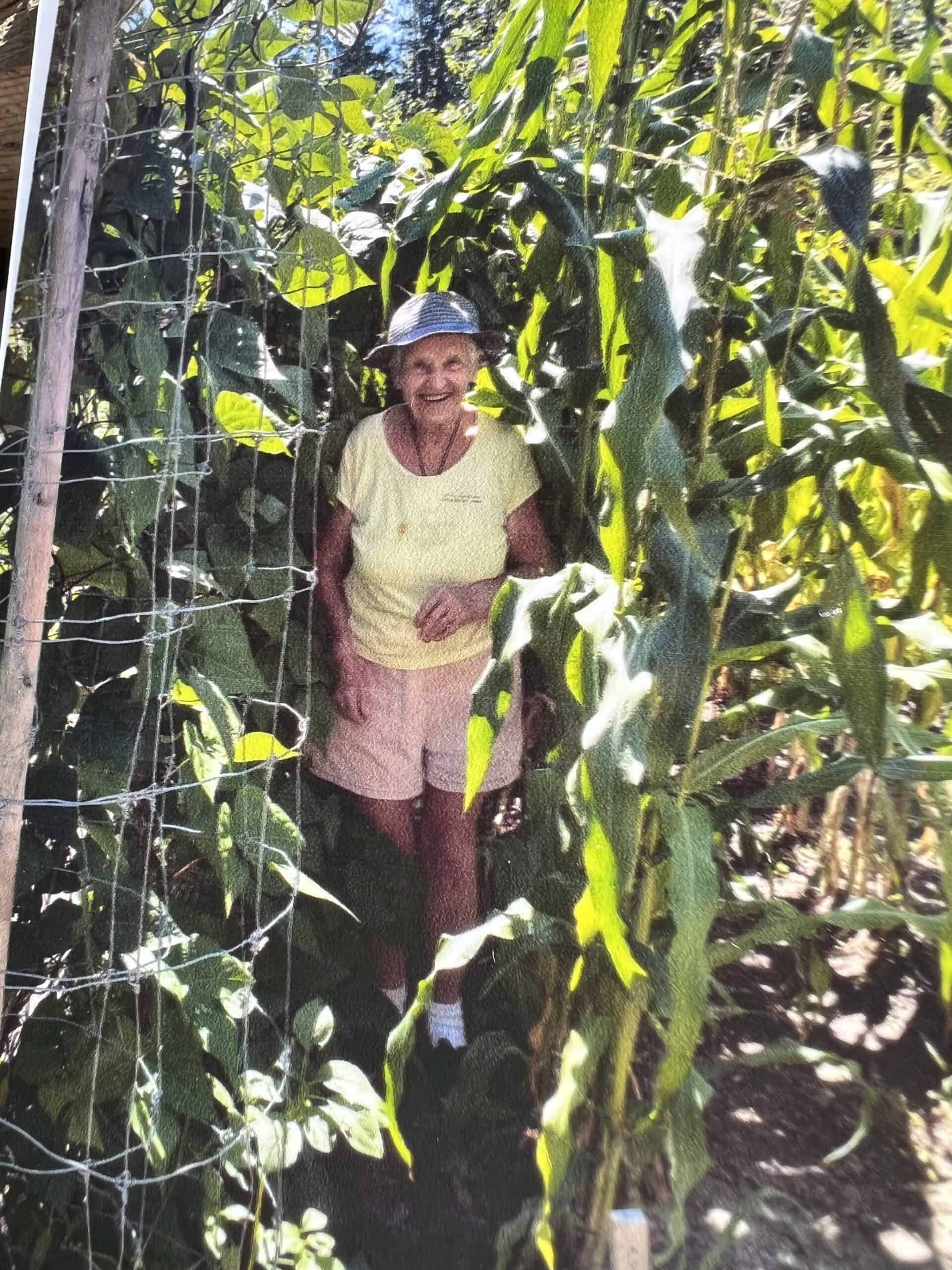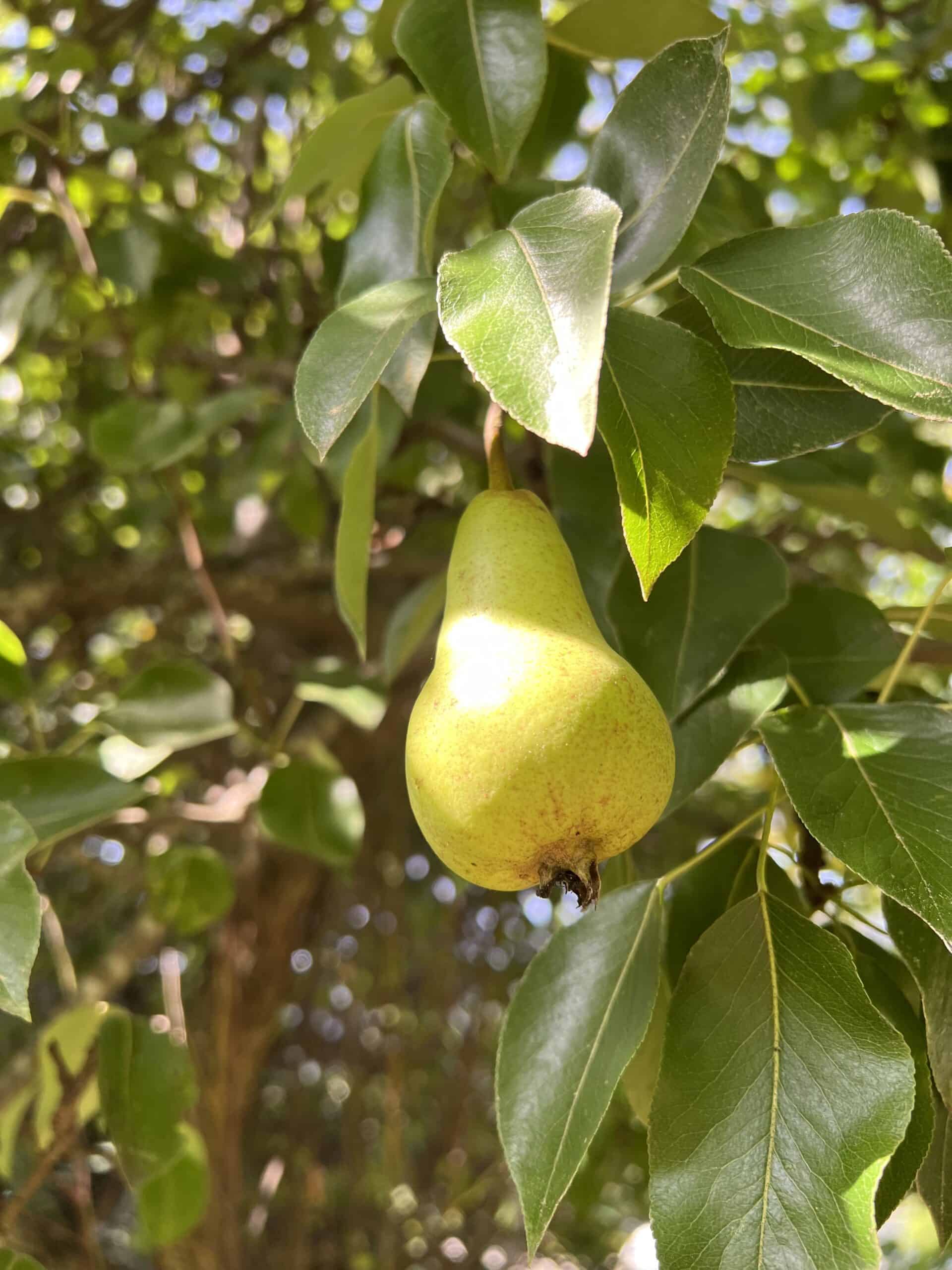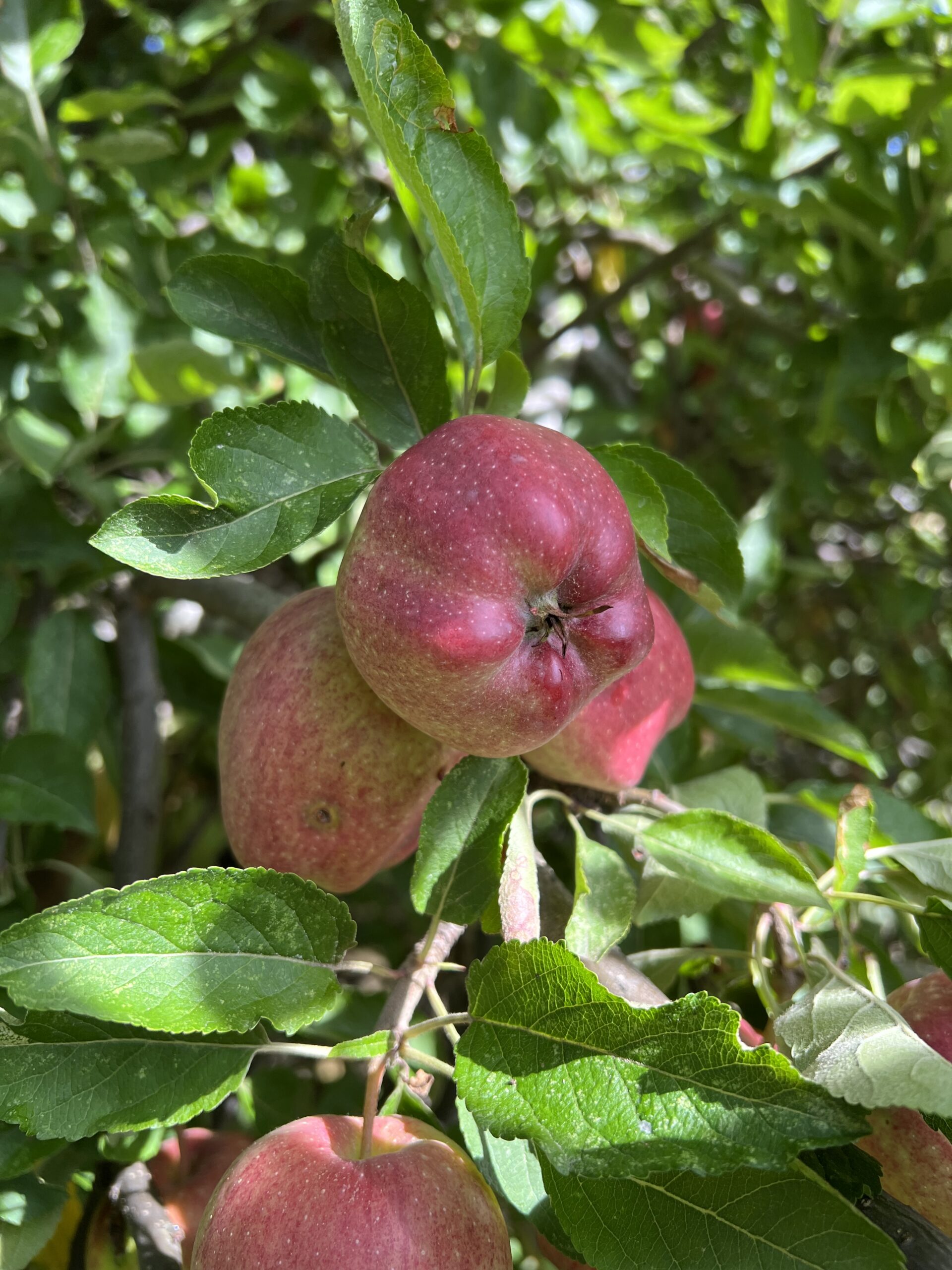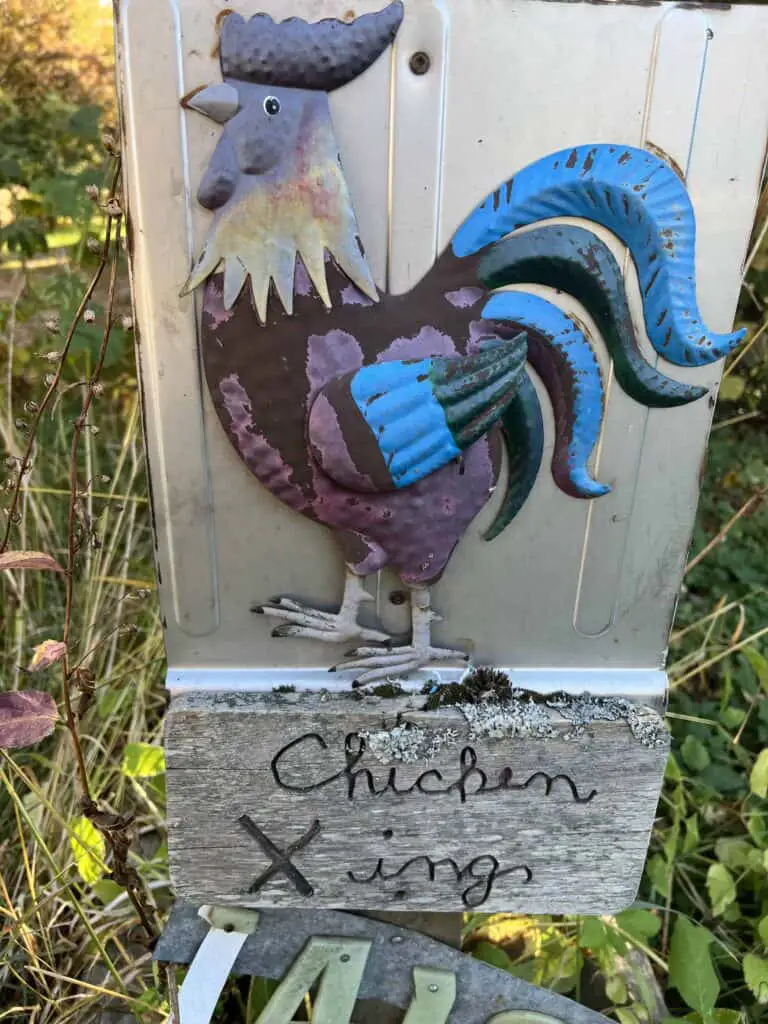
“Chicken Crossing,” warned the sign and indeed there were chickens. I didn’t see them in the winter when I walked my dog past this yard almost daily. However as the weather warmed and spring arrived, they made their appearance along with an abundance of crocuses in the front yard.
Intrigued by this property and with what appeared to be a large garden in the back, I stopped one day to ask who owned it. The couple who were visiting introduced me to Jan, the 90-year-old owner. When I asked if I could rent a portion of her yard for a salad garden she replied: “Yes, you can use part of my property but you cannot rent it. All I ask is that you keep it weeded.”
We closed the deal on a handshake and I spent some time at the local nursery that day choosing vegetables. Garden Therapy had arrived. I felt a real sense of anticipation as I strolled the aisles imagining my soon-to-be garden creation.
Video: In Her Own Words: Jan’s Therapy
Jan has lived in her current house for 50 years. She raised her 6 children here and took in her second husband, initially as a boarder. Together they groomed a garden from sand into something resembling the Garden of Eden it is today.
Epp DeJong was the Master Gardener who set their property on its organic journey. 
Her husband has passed but Jan’s garden has endured and evolved into a neighborhood community garden. It is a cooperative venture where neighbors help plant and harvest a wide variety of greens and other vegetables. Several fruit trees dot the property adding to the annual harvest and communal sharing. In return, neighbors mow, weed, and contribute to yard maintenance.
This garden has become a community gathering spot and social affair. Everyone learns from one another. Everyone helps one another. We discuss garden surprises (and there are surprises, like my collard greens which turned out to be Brussels sprouts) and gardening tips. Many visitors appear in the fall to share the generous fruit and vegetable bounty from this prolific yard.
Jan who grew up on a farm has been close to the land all her life. She says this extensive garden is her life and she believes her largely plant-based diet has contributed to her longevity.
All Organic is Mandatory
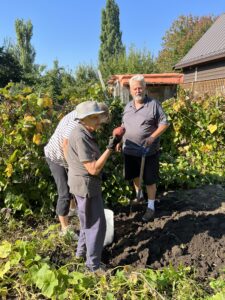 Determined to keep unwanted weeds out of her garden Jan is known to do fine weeding on her hands and knees – still – at age 90. She is also a firm advocate of organic.
Determined to keep unwanted weeds out of her garden Jan is known to do fine weeding on her hands and knees – still – at age 90. She is also a firm advocate of organic.
Until last year she kept chickens who when they were not “crossing,” dealt with garden pests and bugs by adding them to their daily food groups. That was their contribution to the all-organic rule. Pesticides are not permitted. One of the few bug deterrents Jan uses is cayenne pepper. Her late husband would joke that he could hear the bugs sneezing after an application of the pepper to the broccoli. He also assured her that if they ever ate a bug, it would be a healthy one.
Coffee grounds are saved and applied to the carrots to trick the carrot fly into thinking there’s coffee growing under those carrot tops. Dish soap is used to deter worms in the apple crop. 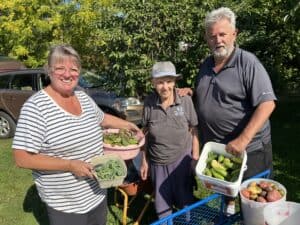
These days Jan can be found shelling peas or harvesting kale for her famous kale and potato casserole. Everything on your supermarket produce racks, can be found here in Jan’s garden – local, definitely fresh – and of course chemical free.
There’s Therapy In Weeding
What motivates a woman of 90 to continue to plant and maintain a garden this size? I asked Jan what her garden meant to her: …” therapy”…she replied.
If she has the odd down day as we all do, she heads out to the backyard, visits her plants and weeds. When she worked as a caterer, if she had a bad day, she would put all the food away, load the dishes into the sink and head out to her back yard where she would weed. If she’d had testy customers that day they were metaphorically yanked out of the ground and discarded.
Jan’s garden in addition to being therapeutic provided a sense of security in the knowledge that she could count on it to feed her family. There was also that wondrous sense of renewal that comes every spring and summer when tiny seeds, saved in the fall, would sprout and produce more vegetables year after year.
Does Gardening Provide a Good Workout?
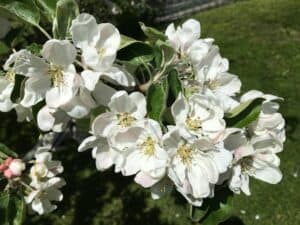
My salad garden soon grew into a small farm and with it the realization that keeping it weeded could be a lot of work. Not only was it necessary to weed between the rows but I was introduced to “fine weeding” – the kind you perform on hands and knees. Weeds are smart. they know how to conceal themselves in the carrots, spinach, and arugula. And unless you want to ingest a weed or two with your arugula, you weed. 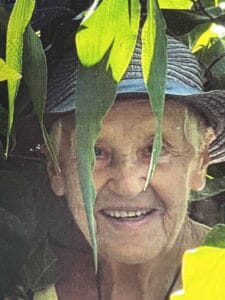
To my surprise, even though tiring, I found fine weeding to be enjoyable. I slept well after a few hours of garden maintenance. There was a sense of accomplishment in seeing a row of carrots restored to carrots only and the knowledge that I had vanquished any weedy interlopers.
I was enjoying working in the dirt and was truly excited to see vegetables begin to grow. It was therapy for me at a time of unprecedented personal loss. Instinctually I must have known I needed this: planting and nurturing something new and seeing it mature and bear fruit. Life goes on. A tiny seed grows into something tangible – a big fat, crunchy carrot. Small green and yellow bean bushes, grown from seed bear their beans all summer long. Nature is amazing.
I began this project thinking about fresh salad greens but it evolved to mean so much more. Gardening is good for the soul and it was my summer therapy.
And it appears that Jan and other gardeners are on to something. From McMaster University comes news that there is such a thing as formal garden therapy. Independent of pharmaceuticals, or lengthy communication with a professional, getting down into the dirt turns out to be a healthy and healing thing to do.
Significant Physiological Changes Happen When You Garden
An increase in levels of brain nerve growth factors BDNF and PDGF takes place, enhancing our cognitive processes and preventing their decline.
Working in a green space is a de-stressor. Patients in hospital for whatever reason, recuperate faster if they have a view of trees and some green space.
If you are depressed, getting into the soil you encounter something known as Mycobacterium vaccae which triggers the release of serotonin in our brain. Serotonin is that happy chemical and a natural anti-depressant that ultimately enhances our immune system.
And if you need further convincing, this article from the NIH should seal the deal: https://www.ncbi.nlm.nih.gov/pmc/articles/PMC6334070/#:~:text=The%20effects%20of%20gardening%20on%20body%20and%20mind&text=It%20combines%20physical%20activity%20with,positive%20impact%20on%20the%20diet.
I cannot wait for Spring 2023 to arrive and for planting to begin!
